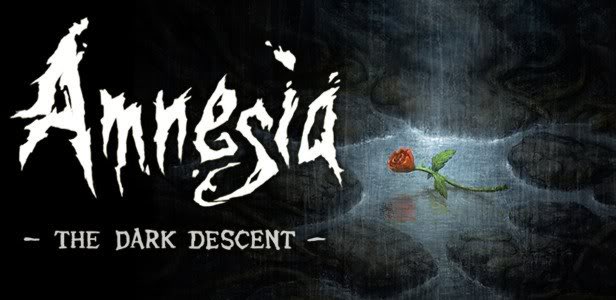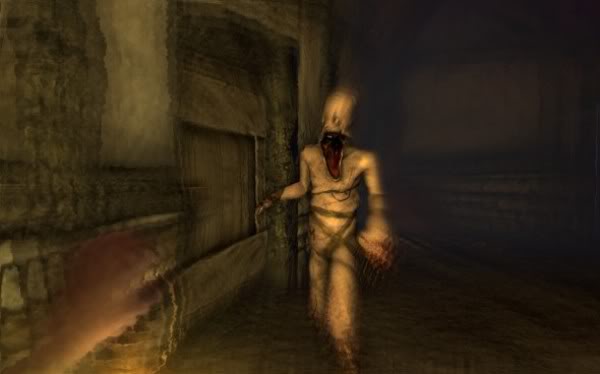This post has not been edited by the GamesBeat staff. Opinions by GamesBeat community writers do not necessarily reflect those of the staff.

When it comes to horror, I’m genuinely jaded. After spending most of my adult life writing about countless films in the genre and reading everything from H.P. Lovecraft to Richard Laymon, I’m largely desensitized to jump scares and gross outs. That doesn’t mean I don’t appreciate the efforts of those creating scares, though. In fact, I find the opposite to be true. I think I appreciate a well done film, book or game even more now because I have such an intimate understanding of how fear is created. Much like a good joke, scaring people appears deceptively simple – the truth is, it’s not. What scares us is arguably as broad and subjective as what makes us laugh. What one person finds terrifying or hilarious may not faze me at all, and vice versa. Trying to discover universal fears and keep them fresh and frightening is a huge challenge.
There have been some genuinely scary horror games over the years – everything from Silent Hill and Fatal Frame to PC titles like Clive Barker’s Undying and so on. Each has worked diligently to merge the idea of the horror narrative with compelling gameplay in order to craft experiences that keep gamers playing even while they cower in fear behind their controllers. As great as some of those have been, few have been as perfect as Amnesia: The Dark Descent.
The brainchild of Swedish indie developers Frictional Games, Amnesia is one of the creepiest videogames to ever grace a PC monitor. The title stands as the company’s master thesis on creating fear in games and provides an interesting template for horror game creators looking to make their mark. Any developer in this subgenre would be well advised to study what Frictional has done here – there’s much to learn.
Amnesia is the studio’s fourth release, coming in the wake of the three titles in their Penumbra series. Those experiences feel almost like test runs for Amnesia – one can see the Penumbra DNA in this newest title, but it’s been refined to such a degree that Amnesia feels only tangentially related to the earlier games. How did Frictional Games achieve this? What sets Amnesia apart not only from its predecessors but most other survival horror games? The answers are threefold, and less complicated than gamers might expect.
One of the commonly accepted truths of horror in books and films is that simpler stories are often the most effective. This is part of the reason why something like John Carpenter’s Halloween (babysitters are stalked by a masked madman) is an enduring classic while Legion (featuring a war in Heaven and other assorted nonsense) is quickly forgotten. Amnesia seems to understand this – but it does something that most books, films, and games have rarely managed to pull off: it’s a simple story that creates the illusion of being something much deeper.
This quality is largely attributable to the influence of author H.P. Lovecraft. The guys at Frictional clearly adore Lovecraft (so much so that they named their 3D game engine HPL in his honor), who created the elaborate Elder Gods mythos and gave us evil monsters like Cthulhu and books of forbidden knowledge like The Necronomicon. There’s a rich mythology running through all of Lovecraft’s fiction, but it’s largely window dressing. When a reader digs beneath the surface of Lovecraft’s work, the themes revolved around issues of mankind being powerless to change its fate (and our fate was almost always to meet a horrific end at the hands of unspeakably awful monsters older than time and space) and how man’s quest for forbidden knowledge often led to destruction. A reader can choose to delve into the mythos Lovecraft created, but the tales are effective even without the elaborately constructed details. You don’t need to know the history of Cthulhu to find The Call of Cthulhu terrifying.
Amnesia gets the significance of Lovecraft, and runs with the same ideas. The game is ostensibly about a character named Daniel who awakens in deserted European castle with no memory of who he is or how he got there. The rest of the player’s time is spent unraveling that mystery (the revelations, which I will not spoil here, are decidedly Lovecraftian in their construction) and potentially thwarting a great evil.

However, what Amnesia is really about is moving through a creepy and desolate location filled with monsters who will kill the player on sight. It’s almost like a classic sleight-of-hand – Frictional pulls off a brilliant misdirection by crafting an elaborate mythology, but the reality of the thematic content is much simpler. The benefit is that the title resonates with a wider range of players. The terror of being killed by unstoppable monsters is more universal than being creeped out by exploring a haunted castle and stopping evil from other dimensions.
Still, the story is arguably Amnesia’s weakest point. The game features multiple endings and none of them are particularly satisfying.
The second element that sets Amnesia apart and puts it above so many of its brethren is the gameplay.
Frictional builds on an idea they first started exploring in 2008’s Penumbra: Black Plague – de-emphasizing combat in favor of stealth. It’s a brilliant idea, and amnesia takes it even further. Players in Amnesia are always potentially in danger, but unlike countless other survival horror games where the player can take the fight to their attackers, Frictional provides no recourse other than running. It’s “fight or flight” simplified to a single option.
The idea of continuously running from attackers doesn’t sound all that exciting on paper. However, the execution of the concept ratchets Amnesia’s tension level up to a point where it’s nearly unbearable.
With no way to defend himself, the player is forced to proceed with caution and plan methodically. Opening doors is legitimately frightening when you have no idea what might be on the other side and no real way of confronting an enemy if one is there. Without weapons or melee attacks, the player is completely defenseless. There’s nothing to fall back on – there’s just running and hiding.
Few games make the player feel so helpless. Even the incredibly intense Fatal Frame games gave players a camera that could stop the ghosts stalking them.
Amnesia offers no such tool for survival – the only lines of defense are ones players concoct for themselves. Gamers quickly learn to close doors behind them because it prevents a monster from launching a surprise attack from the rear. Upon entering any room, it becomes second nature to note where the shadowy corners and closets are – those are the best hiding places. When a game makes the player this vulnerable, this powerless, it becomes infinitely more frightening.
Finally, the game returns once again to its Lovecraftian roots with the presentation of its monsters. The creatures skulking through the dark hallways of the castle are spooky enough, but become even moreso because the player isn’t allowed to look at them. To stare at the creatures is to court going insane (which makes maneuvering the main character very unreliable) and will also draw their attention if they haven’t spotted Daniel yet.
Because the player never gets a really good look at the enemy, the mind starts to fill in all sorts of horrible details. They must have wicked claws and slavering jaws filled with sharp teeth. We imagine that if we look closely enough, we’ll be able to see the meaty remnants of previously devoured victims embedded between those teeth.
Lovecraft utilized the same techniques in his writing – the horrors confronting his characters were always “too terrible to describe” and relating them to the reader would “surely push one over the precipice of sanity.” It’s a simple trick that writers and filmmakers still employ today because they understand that the audience will concoct something far more terrifying (and personal) than they could ever accurately relay on their own. Sometimes less really is more.
While I would never go so far as to call Amnesia: The Dark Descent the “scariest game ever,” I think it does so many things well that it’s not only a chilling experience for players, but a game worthy of study by developers looking to spook their audiences. Developers can take the concepts Frictional has used to create tension and transfer them into their own vastly different games with minimal effort because the beauty of Amnesia’s success lies in its simplicity. Here’s hoping that they do – while shooting an endless stream of zombies in the head never gets old, I’d love to play more survival horror games that emphasize the horror elements as much as the survival.
